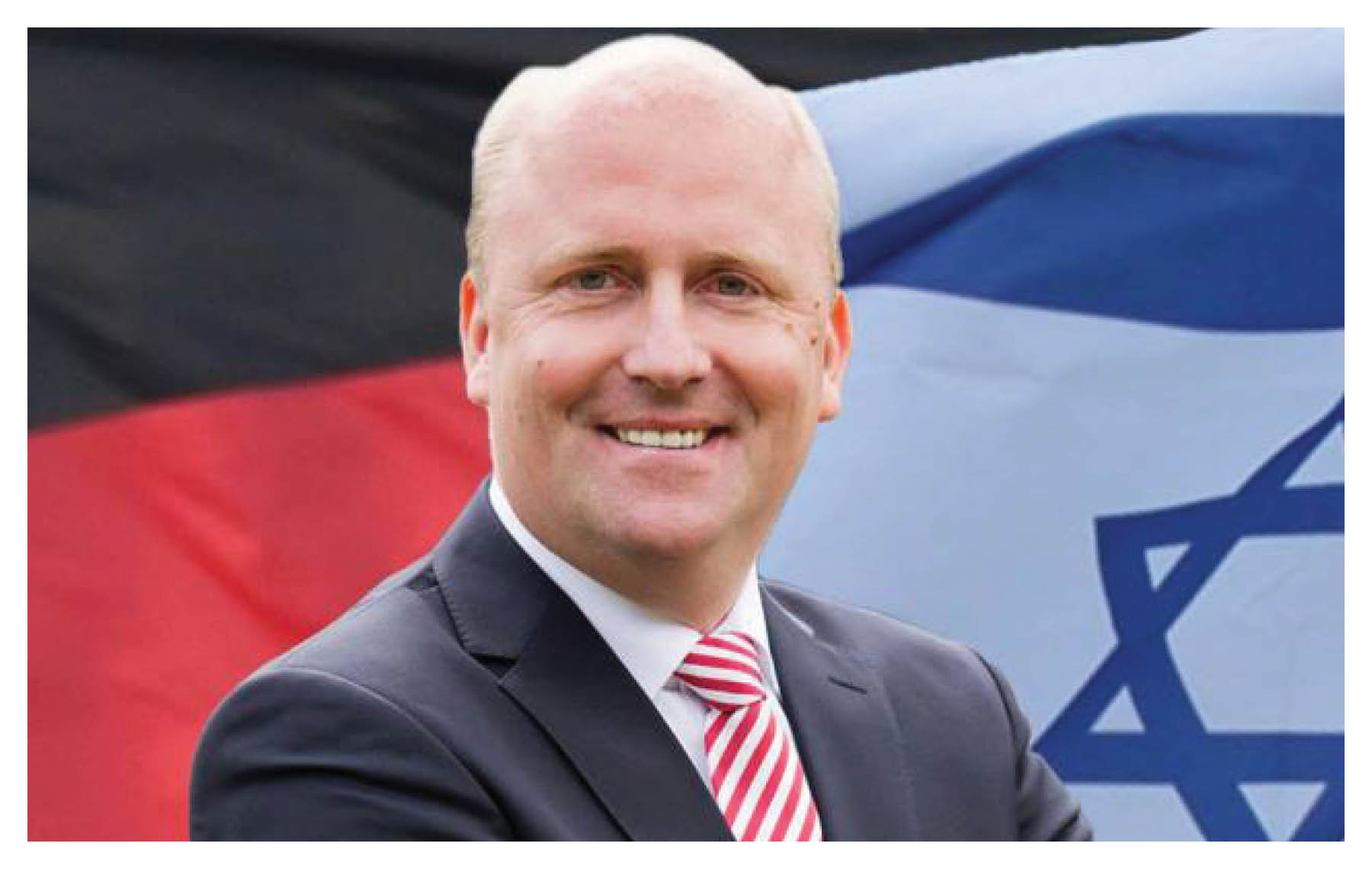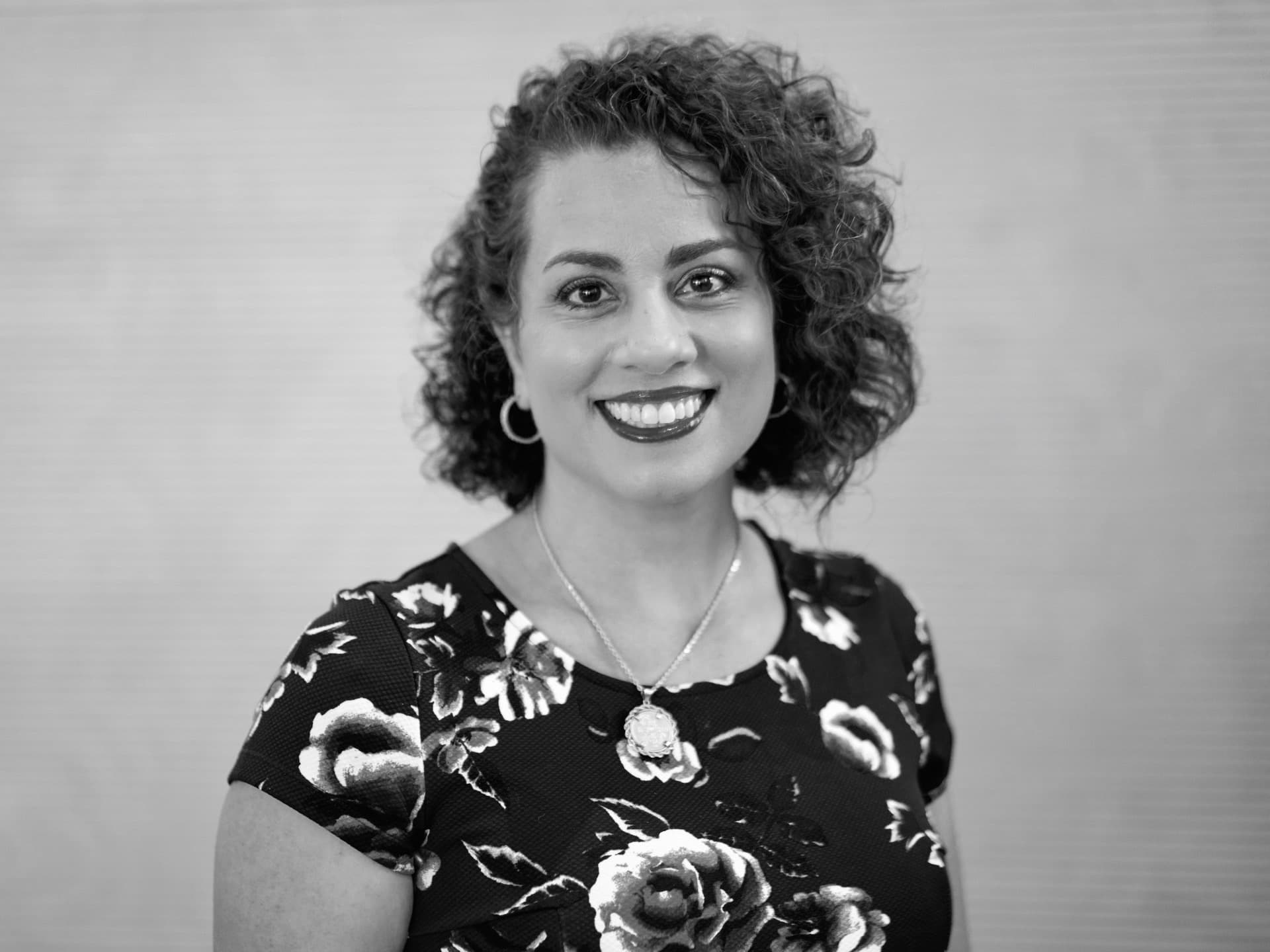 Uwe Becker
Uwe Becker Uwe Becker’s Facebook page might confuse followers into thinking he’s the mayor of an Israeli city. Almost every other post includes references to Israel. One features a screenshot of “red alerts” signaling attacks on southern Israel. One profile picture reads, “Jerusalem is the capital of Israel.” After the attack at a Pittsburgh synagogue, it was changed to: “#TogetherAgainstAntisemitism.”
Of course, he’s not the mayor of an Israeli city but of Frankfurt, Germany’s financial capital. He’s also one of Germany’s most pro-Israel politicians, having taken up Israel’s cause with steadfastness, out of personal conviction and an understanding of Frankfurt’s Jewish roots.
At his office at the Town Hall in the historic city center, he pointed through the window to the Paulskirche (House Church), where German Jews led the first National Assembly in 1848 to establish constitutional democracy in Germany, a movement that was eventually quelled by the ruling, aristocratic elite. The Rothschild banking family hails from Frankfurt. Evidence of Jewish life in Frankfurt dates to the 12th century, but it is believed to have begun under the Roman legions. They lived largely as merchants, traders and moneylenders in this imperial free city.
“It’s the most Israel-friendly and the most Jewish city in Germany,” Becker said proudly, surrounded by Israeli and Jewish memorabilia.
Leaving his office without a security detail, he took a reporter on a brief city tour, starting with the restored Old Town. The first Jewish ghetto in Europe was set up in the Judengasse (Jewish Alley) in 1462. In the seminal book on the history of German Jewry, “The Pity of It All,” 19th-century German writer Johann Wolfgang von Goethe is cited as describing the overcrowded, heavily regulated ghetto as follows: “The confinement, the dirt, the swarm of people … made a disagreeable impression, even from only outside the gate. … And yet they were also human beings, energetic, agreeable. Their obstinacy in sticking to their own customs, one could not deny to respect it. Moreover, the girls were pretty.”
While Becker trumpets Frankfurt as a “Jewish city,” Jews were not spared persecution throughout the ages, including the Holocaust, to Becker’s deep pain. Today, the Jewish cemetery constitutes the city’s Holocaust Memorial, and the Jewish Museum is situated in the former Judengasse.
Fast forward to the early 1980s, and Tel Aviv and Frankfurt are declared sister cities, a natural match considering both are the only cities in their respective countries with a true metropolitan skyline. A tram goes through the city parading pictures of Tel Aviv and the Hebrew word for “friendship.”
“I would call it one of our most vivid partnerships,” Becker said. “With Tel Aviv, there is a very deep connection between bilateral visits and youth exchange.”
Thanks to Becker’s lobbying, the boycott, divestment and sanctions (BDS) movement has been declared anti-Semitic by his party, the Christian Democratic Union (CDU). Frankfurt bans BDS activities from its municipal spaces and doesn’t do business with banks that engage BDS and BDS-affiliated groups.
“I saw [BDS] was gaining support, and I was afraid that when they brand Israel like the worse ‘apartheid’ state, it would be really difficult to change. I said to myself, ‘We can’t wait to let them march on the ground.’ ”
Becker’s public pro-Israel line isn’t always in sync with the reigning policies of his own political party, which as of late is has been accused of having grown tepid in its support for Israel. Lame-duck Chancellor Angela Merkel’s coalition government criticized President Donald Trump’s recognition of Jerusalem as Israel’s capital. Becker publicly praised the president’s decision.
Similarly, in reaction to Trump’s defunding of the United Nations Relief and Works Agency, the German government pledged to fill in the gaps — to Becker’s dismay. He also opposes dealings with an Iran that pledges Israel’s destruction while the German government (part of the P5+1 coalition that signed the agreement) seeks to salvage the Iran deal.
He thinks the German position to cater to Palestinians and Iran comes from a desire to be evenhanded and humanitarian.
“Historically, Germany has always tried to moderate conflict, to be in the role where two possible partners accept Germany as a moderating partner,” he said.
He shares his government’s support of a two-state solution, but as the best option in the face of no other viable alternatives. However, support for the Palestinian Authority must cease until it ends terror attacks and its pay-for-slay schemes, he said.
“As long as Gaza uses money for terror tunnels, we must freeze our aid,” he said.
On the controversial refugee policy, Becker recognized a need to assist asylum seekers but he favors rapid integration and the combatting of anti-Semitism in their midst, which includes not only visits to concentration camps but education on Israel. He thinks as an international city, which accepted some 7,000 refugees, Frankfurt is poised to lead the change. Today, about 7,000 Jews live in Frankfurt.
As the Catholic grandnephew of a local mayor who belonged to the Nazi-resistant SPD party, Becker’s support for Israel doesn’t necessarily come from the “historic responsibility” many Germans feel because of the Shoah, but from the personal connection he developed upon his first visit to Israel in 2004.
“To make it short, I fell in love with the country. … When you get back to Germany and Europe and you see how the media is reporting on Israel in a way that’s different from the situation, it really got my internal motivation to say that someone has to tell the real story about the country.”
Orit Arfa is a journalist and author based in Berlin.























 More news and opinions than at a Shabbat dinner, right in your inbox.
More news and opinions than at a Shabbat dinner, right in your inbox.